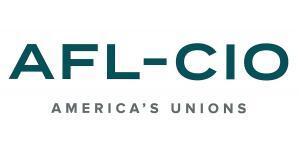Fresh off a two-week recess, Senate Majority Leader Mitch McConnell kicked off today’s session by getting the legislative ball rolling on the Senate’s FAA bill.
McConnell moved to proceed to an unrelated House bill (H.R. 636), which will serve as the legislative shell for the Senate’s FAA measure (S. 2658), the first of several steps that need to be completed before members can debate and vote on the bill.
This tees up possible floor action on the legislation as soon as this week. However, Senate leaders will have to agree on several outstanding issues if lawmakers hope to make it to a final passage vote within the next two weeks – before appropriations season kicks off in earnest.
The Senate Commerce Committee today updated its FAA page with the bill text that will be considered on the floor in addition to addressing questions about tacking on security-related provisions in light of the Brussels terror attacks.
To view online:
https://www.politicopro.com/transportation/whiteboard/2016/04/mcconnell-tees-up-senate-consideration-of-faa-bill-069819
Here are the top priorities for the FAA bill during floor consideration.
- Airport security. Our problems with the Thune bill on airport security (S. 2361) are centered around Section 7(a) on eligibility requirements. We are opposed to the language that requires the TSA to revise the SIDA regulations (Sec. 7(a)(1)) and to specifically look at adding to the list of disqualifying offenses (Sec. 7(a)(2)). We are also extremely opposed to the language that requires the TSA to propose an increase in the look-back period from 10 to 15 years (Sec. 7(a)(4)). We suggest striking Sec. 7 from S. 2361 and replacing with Section 2(b) of H.R. 3102. I have attached the language from 3102 that we would like to see, but as you will see, it requires the TSA to conduct a thorough review of airport security procedures along with the FBI, the Aviation Security Advisory Committee, and labor unions. The language also specifies that the review shall include an analysis on whether the disqualifying offense list or look-back period should be expanded. So we’re not ignoring this as a possibility, but requiring a review of the current program prior to moving forward with a rulemaking. He have also written about this issue here.
- Customer Service Representative Assaults. This is another issue that we have written about more broadly (here and here). We are seeking a modification of current law that would allow the federal law that addresses interference with and assaults on flight crewmembers to also apply to interference with and assaults on airline customer service representatives. I have attached the text of the amendment that was adopted via voice vote during the House AIRR Act markup. This amendment does not cost the government, airlines or airports any money, and does not place an additional legal or liability burden on any of those parties. It simply ensures that these workers are being covered by the same federal statute that covers flight crew members.
- Flight attendant minimum rest. During the markup of the House AIRR Act the T&I Committee adopted an amendment that would require a 10-hour minimum rest period for flight attendants between duty periods. Current law requires a 9-hour minimum rest period, but it can be reduced to 8 hours if the subsequent rest period is 10 hours or more. The House amendment also included a requirement for airlines to submit to the FAA a fatigue risk management plan for the carriers’ flight attendants. The current Senate language is insufficient. It would mandate a 10-hour minimum rest period that can be reduced to 9 hours when the subsequent rest period is at least 11 hours. TTD and its affiliates are calling for 10 hours without exception. The Senate base bill did not include the fatigue risk management plan language, but this was added during the markup as part of a group of amendments added en bloc.
Strike Sec. 7(a) and replace with (the House language):
(a) DISQUALIFYING OFFENSES.—
“(1) IN GENERAL.—Not later than 180 days after the date of the enactment of this section, the Administrator, in consultation with the Director of the Federal Bureau of Investigation, labor organizations representing aviation, ground, and cabin crew workers, and the Aviation Security Advisory Committee, shall conduct an aviation security risk-based review of the disqualifying criminal offenses codified in sections 1542.209 and 1544.229 of title 49, Code of Federal Regulations, to determine the appropriateness of such offenses as a basis for denying to an employee a credential that allows unescorted access to Secure Identification Display Areas of airports. Such review shall consider the following:
“(A) The adequacy of codified disqualifying offenses to address the current aviation security threat environment, particularly the terrorism insider threat.
“(B) If such codified disqualifying offenses should be tailored to address the current aviation security threat environment, particularly the terrorism insider threat, by excluding or including other offenses.
“(C) The potential security benefits, drawbacks, and challenges associated with identifying patterns of misdemeanors or of other non-disqualifying offenses that could jeopardize aviation security.
“(D) The feasibility of integrating similar departmental eligibility requirements for access to Secure Identification Display Areas of airports.
“(E) If the 10-year look-back period for disqualifying offenses is appropriate, in light of the current aviation security threat environment, particularly the terrorism insider threat.
“(2) WAIVER.—Not later than 180 days after the date of the enactment of this section, the Administrator shall provide an adequate redress process for an employee who is subject to an adverse employment decision, including removal or suspension of such employee, due to a disqualifying offense referred to in paragraph (1), that is consistent with the appeals and waiver process established for applicants for commercial motor vehicle hazardous materials endorsements and transportation workers at ports under section 70105(c) of title 46, United States Code.
“(3) NOTICE.—Any changes to the Secure Identification Display area badge program, such as changes considered pursuant to subparagraphs (B), (C), (D), and (E) of paragraph (1) shall be subject to notice of proposed rulemaking.
“(4) BRIEFING TO CONGRESS.—Upon completion of the aviation security risk-based review required under paragraph (1), the Administrator shall brief the Committee on Homeland Security of the House of Representatives and the Committee on Homeland Security and Governmental Affairs and the Committee on Commerce, Science, and Transportation of the Senate on the results of such review.

